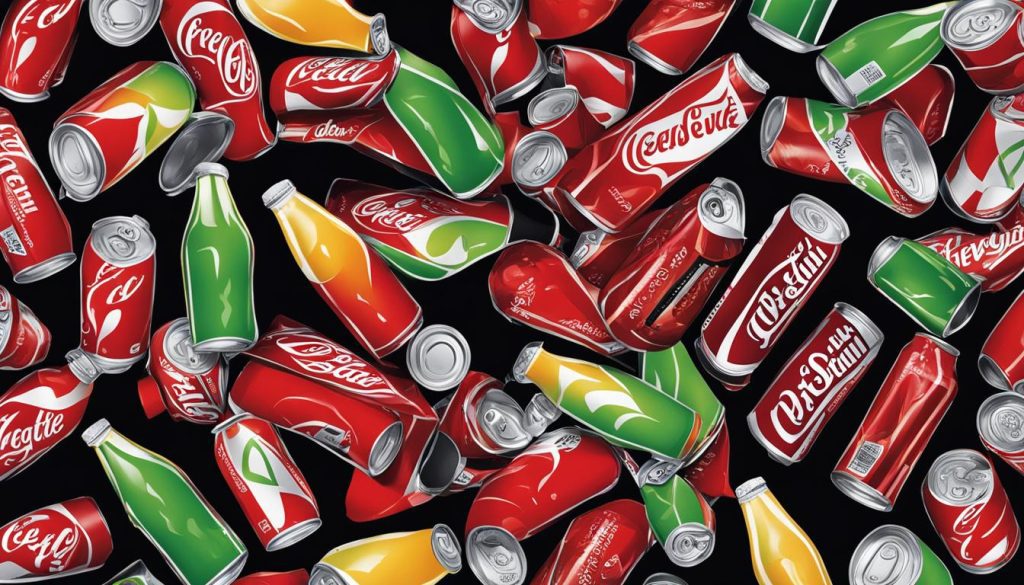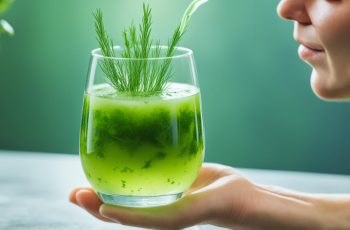Welcome to the eye-opening world of diet soda! If you’ve been sipping on these seemingly guilt-free beverages, thinking they are a smart choice for your health, you may want to think again. Recent research suggests that diet soda may not be the best option when it comes to quenching your thirst and maintaining your well-being. In fact, there are several reasons to stop drinking diet soda in your life completely.
Diet sodas have gained popularity among individuals looking to reduce their calorie intake. However, studies have shown that the artificial sweeteners used in these drinks can do more harm than good. From weight gain to insulin confusion and even negative effects on the brain, the health risks of diet soda are numerous. But don’t worry, there are also several benefits to quitting diet soda that can greatly improve your overall health.
Read further to know the reasons to stop drinking diet soda and the benefits you can get by doing so.
Reasons to Stop Drinking Diet Soda
- Regular consumption of diet soda may lead to weight gain due to increased cravings for calorie-dense foods.
- Diet soda can potentially disrupt insulin levels, leading to insulin resistance and an increased risk of Type 2 diabetes.
- The brain’s response to sweetness is altered by diet soda, potentially promoting cravings for unhealthy foods.
- Quitting diet soda can result in improved hydration, reduced sugar and calorie intake, and a lower risk of tooth decay and heart disease.
- Swap out diet soda for healthier alternatives like flavored seltzers or herbal teas to support your journey towards a healthier lifestyle.
By understanding the reasons to stop drinking diet soda, you can make informed choices about your beverage consumption and prioritize your long-term well-being. Stay tuned as we dive deeper into each of these reasons and explore the surprising effects that diet soda can have on your health.
Reasons to Stop Drinking Diet Soda #1: Diet Soda and Weight Gain
One of the reasons to stop drinking diet soda concerns your weight. Studies have shown that consuming diet soda on a regular basis can contribute to weight gain. Interestingly, the brain’s response to artificial sweeteners in diet soda can actually increase cravings for high-calorie foods. This can lead to overeating and sabotaging your weight management goals.
Research has found that individuals with overweight or obesity who switch to diet soda tend to consume more calories from food compared to those who stick to regular soda. In fact, it is not uncommon for people who drink diet soda to have a higher body mass index (BMI) than those who opt for sugary beverages.
So, if you’re trying to watch your weight or lose some pounds, it’s worth considering the dangers of consuming diet soda. While it may initially seem like a good alternative to sugary beverages, the potential risks of weight gain associated with diet soda consumption make it less than ideal for maintaining a healthy weight.
The Brain’s Reaction to Artificial Sweeteners
The brain plays a significant role in influencing our food choices and cravings. Artificial sweeteners, found in diet soda, can trick the brain’s reward center, leading to an increased desire for calorie-dense foods. This can make it challenging to resist indulging in unhealthy snacks and can contribute to weight gain over time.

To make matters worse, the association between sweetness and caloric intake gets disrupted when consuming diet soda. As a result, the brain’s reward system may become less responsive to naturally occurring sweet flavors from fruits and other sources.
It’s important to be mindful of the potential negative impact that diet soda can have on our brain’s response to sweetness. By reducing or eliminating diet soda from our diets, we can retrain our taste buds and decrease cravings for high-calorie foods.
Taking a Closer Look at the Risks
The risks of drinking diet soda extend beyond weight gain. Studies have also suggested a link between diet soda consumption and an increased risk of metabolic syndrome, diabetes, and cardiovascular disease.
Furthermore, the artificial sweeteners found in diet soda can disrupt the balance of gut bacteria, which play a crucial role in various aspects of our health, including digestion, metabolism, and immune function.
To protect our overall well-being, it may be wise to weigh the potential dangers of consuming diet soda against the perceived benefits of consuming a calorie-free beverage.
- Increased risk of weight gain.
- Disrupted brain response to sweetness.
- Potential link to metabolic disorders and cardiovascular disease.
- Disturbance in gut bacteria balance.
Considering these risks, it becomes evident that opting for healthier alternatives, such as water, unsweetened tea, or natural fruit-infused beverages, is a wiser choice for maintaining optimal health and managing weight effectively.
Reasons to Stop Drinking Diet Soda #2: Insulin Confusion and Diet Soda
Another additional to the reasons to stop drinking diet soda is it disrupts your insulin level. Consuming diet soda comes with potential risks, one of which is its effect on insulin levels. Despite being calorie-free, artificial sweeteners present in diet soda can still trigger the release of insulin in the body, leading to a phenomenon known as insulin confusion. This can increase the risk of developing insulin resistance and Type 2 diabetes.
Research has shown that certain artificial sweeteners, such as sucralose, can cause increases in both insulin and blood glucose levels, further highlighting the potential harm of diet soda on metabolic health. These findings suggest that the consumption of diet soda, despite being marketed as a healthier alternative to regular soda, can have adverse effects on our body’s insulin regulation and overall metabolic function.
To visualize the potential impact of diet soda on insulin levels, consider this image:
It’s important to be aware of the health effects of diet soda and the dangers of artificial sweeteners, especially when it comes to insulin regulation. By reducing or eliminating our consumption of diet soda, we can take steps towards maintaining a healthier metabolism and reducing the risk of long-term health problems.
Reasons to Stop Drinking Diet Soda #3: Brain’s Reaction to Diet Soda
Studies have indicated that drinking diet soda can have significant effects on the brain’s response to sweetness. Research suggests that individuals who consume diet soda may experience higher activity in the brain’s reward center, which is associated with the desire for foods that are high in fat and sugar.
This altered brain response to sweetness may contribute to cravings for calorie-dense foods, potentially leading to overeating and unhealthy eating habits. The negative impact of diet soda on the brain’s reward system reveals the harmful effects it can have on our overall health.
It’s important to note that while diet soda may be marketed as a healthier alternative to regular soda, these findings indicate that it may not be as beneficial as it seems. The brain’s reaction to sweetness plays a crucial role in our food choices and satisfaction, and consuming diet soda can disrupt this delicate balance.
By understanding the brain’s reaction to sweetness and the negative impacts of diet soda, we can make informed decisions about our beverage choices and prioritize our health. It’s essential to be mindful of the potential harmful effects of diet soda and consider healthier alternatives that do not disrupt our body’s natural processes.

Health Benefits of Cutting Out Diet Soda
Eliminating diet soda from your daily routine can have a profound impact on your overall health and well-being. Not only does quitting diet soda improve hydration levels, but it also eliminates the risk of dehydration, which can occur due to the diuretic effect of soda. By switching to healthier alternatives like water, you can stay properly hydrated throughout the day and support the optimal functioning of your body.
Reduced Risk of Tooth Decay and Enamel Erosion
One of the significant health benefits of quitting diet soda is the decreased risk of tooth decay and enamel erosion. Diet soda contains phosphoric acid and citric acid, which can erode tooth enamel over time and contribute to dental cavities. By cutting out diet soda, you can protect your teeth from these harmful effects and maintain a healthier smile.
Decreased Sugar and Calorie Intake
Diet soda is often consumed as an alternative to sugary beverages, but it’s important to note that artificial sweeteners used in diet soda can still contribute to weight gain and health issues. By removing diet soda from your diet, you can significantly decrease your sugar and calorie intake, which can lead to potential weight loss and an overall improvement in physical health.
Lower Risk of High Blood Pressure
Regular consumption of diet soda has been linked to an increased risk of high blood pressure. By switching to water and other healthier beverages, you can lower your risk of developing this serious health condition. Water is essential for maintaining a healthy blood pressure level and supporting proper cardiovascular function.
Reduced Risk of Type 2 Diabetes and Heart Disease
Avoiding diet soda can have a positive impact on lowering the risk of developing Type 2 diabetes and heart disease. Research suggests that artificial sweeteners in diet soda can disrupt the body’s natural insulin response, potentially leading to insulin resistance, a risk factor for Type 2 diabetes. Additionally, the consumption of sugary or artificially sweetened beverages, including diet soda, has been associated with an increased risk of heart disease. By making the switch to healthier alternatives like water, you can promote better metabolic health and reduce the likelihood of developing these chronic conditions.
In conclusion, cutting out diet soda from your daily routine can bring about a myriad of health benefits. By switching to water and other healthy beverages, you improve hydration levels, protect your teeth, reduce sugar and calorie intake, lower blood pressure, and decrease the risk of developing Type 2 diabetes and heart disease. Make the choice to prioritize your health by saying goodbye to diet soda and embracing healthier alternatives.
Conclusion
Now that you’ve learned about the reasons to stop drinking diet soda, I strongly recommend quitting it completely. While it may seem like a convenient way to cut down on calories, the potential risks to your health far outweigh any temporary benefits it may provide.
Diet soda addiction is a real concern, as research suggests that the brain’s reaction to artificial sweeteners can increase cravings for high-calorie foods, leading to weight gain. Additionally, the insulin confusion caused by these sweeteners can increase the risk of developing insulin resistance and Type 2 diabetes.
Fortunately, there are plenty of alternatives to diet soda that can satisfy your taste buds while supporting your health. Flavored seltzers and herbal teas are excellent options to replace the carbonation and taste without the added artificial sweeteners. By making these small but significant changes to your lifestyle, you can embark on a journey towards improved overall health and well-being.
FAQ
What are the reasons to stop drinking diet soda?
There are several reasons to consider quitting diet soda, including potential weight gain, risks to insulin levels, and negative impacts on the brain’s reward system.
Does drinking diet soda contribute to weight gain?
Studies have shown that individuals who consume diet soda regularly are more likely to experience weight gain compared to those who don’t. The brain’s reaction to artificial sweeteners may increase cravings for high-calorie foods, leading to overeating and weight gain.
How does diet soda affect insulin levels?
While diet soda is calorie-free, it can still trigger the release of insulin in the body, leading to insulin confusion. This phenomenon can increase the risk of developing insulin resistance and Type 2 diabetes. Certain artificial sweeteners, like sucralose, have been shown to cause increases in insulin and blood glucose levels.
What is the impact of diet soda on the brain’s reward system?
Research suggests that drinking diet soda can alter the brain’s response to sweetness and increase activity in the reward center associated with the desire for calorie-dense foods. This may contribute to cravings and overeating, promoting unhealthy eating habits.
What are the health benefits of cutting out diet soda?
Quitting diet soda can improve hydration levels, reduce the risk of tooth decay and enamel erosion, decrease sugar and calorie intake, potentially leading to weight loss, and lower the risk of conditions like high blood pressure, Type 2 diabetes, and heart disease.
Are there alternatives to diet soda?
Yes, there are plenty of alternatives to diet soda. You can try flavored seltzers, herbal teas, infused water, or simply opt for plain water. These options can provide hydration without the negative health effects associated with diet soda.




